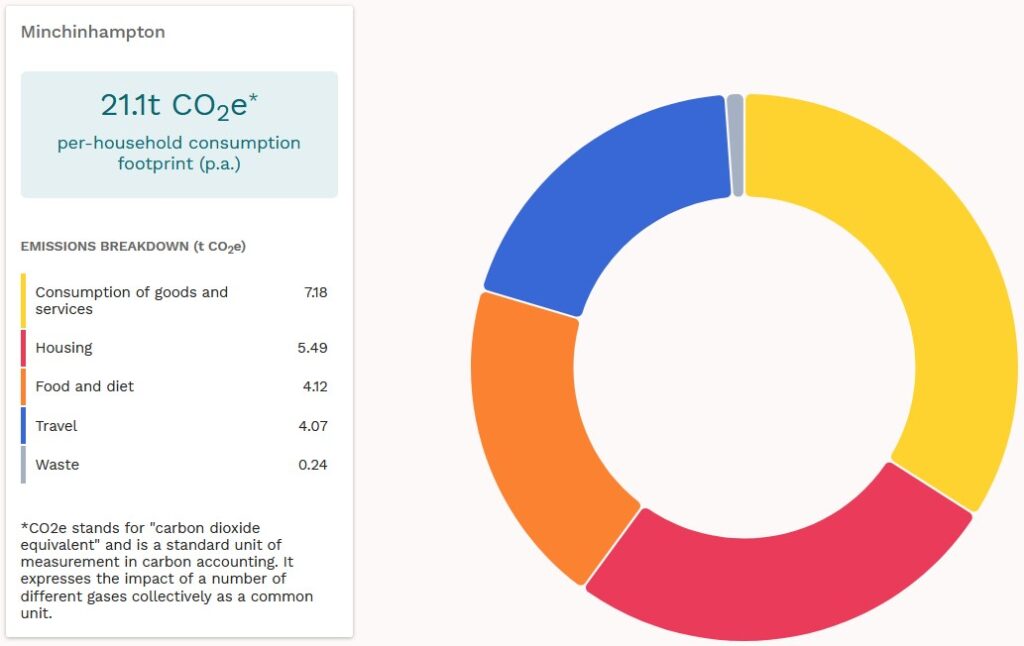“Would you mind not standing on my chest, my hat’s on fire.”
The Doctor, in a pickle, in The Androids of Tara from Doctor Who
We can’t keep on living like this – it doesn’t work.
We can’t keep on filling the sky with smoke and expect nothing to happen. We can’t keep cutting down trees, damaging the actual ways in which the world cleans our air, and still expect nothing to happen.
There’s only so much world to go around, and over the centuries we’ve wasted and wrecked so much of it that things have now started going very badly wrong. We’re tipping the balance.
It’s crunch time
Things happen when they shouldn’t, where they shouldn’t. Things that shouldn’t happen at all. This is the climate crisis. It’s happening here. It’s happening now. Millions of people around the world are doing millions of things to make things worse.
Yet millions of people also around the world are also doing millions of things to make things better, and here, in the communities around the Commons around Minchinhampton, there live thousands of people who could do thousands of things to help.
We could all do our bit to help tip the balance back. We’re starting with #aThousandActions, and we’d love it if you joined in with us.
“You can throw your hands up, you can beat the clock (yeah).
Hall of fame by The Script
You can move a mountain, you can break rocks.”
In numbers
We talk about carbon neutrality: creating no more carbon than the Earth can deal with, because it’s having too much carbon in our atmosphere that’s warming the world up. It’s the main part of the most important ‘greenhouses gases’.
Two numbers are important here: the carbon we put into the atmosphere because of the things that we’re buying and using, our ‘caused carbon’, our consumption, and the carbon that’s created because of what we do, our ‘made carbon’, our production.
Consumption carbon is what we make happen through our own personal choices. In Minchinhampton Parish, the average household causes the equivalent of 21.09 tonnes of CO2 each year which, because they’re sort of a handy short-hand for weight, is basically an African elephant every 15 weeks or so.
Every single house. On average. (If by the way you want to calculate your own specific carbon footprint, try some of these calculators.)
The carbon we cause through for example eating out-of-season strawberries is strewn all across the world, from the places where they’re grown, by the refrigerated vehicles they travel in, in the warehouses they’re distributed from, to the supermarket where we shrug and say ‘they’re not as nice as the local ones’, but buy them anyway.
Most of our locally-caused carbon comes from stuff – socks, step-ladders, smartphones – in this way, 18% of it. Another 15% comes from burning gas for heat, and 10% from eating meat and fish. Flights contribute a further 9%.

Are we particularly bad? The average Stroud District household causes 18.1 tonnes, and the average for England is 13.1 tonnes. We really do step on the gas here, in more ways than one.
Production carbon on the other hand is what’s made here, and mostly we don’t get a chance to much influence that. We don’t get to choose whether an incinerator is built, or a road’s widened, or a wood is chopped down.
Across Minchinhampton Parish, in turned-up bedroom radiators, all-night shop-front lighting displays, idling office computers, pigs contentedly farting and despairing cars snarled in jams; in industry, commerce, farming, public services, transport and homes, each year together we produce 44,549.50 tonnes of CO2 equivalent, mostly on our roads, in our skies, in our commercial machines, and through home heating.

That’s a touch over 7303 elephants. And just 64 of those elephants get soaked up by our local trees and hedges and other plants. Clearly, that leaves a lot of elephants to go if we’re going to get to zero.
Our total consumption incidentally is 50,857 tonnes by way of comparison. We cause more carbon to be created in the world than the world causes to be created here.
Credit
We used the IMPACT Community Carbon Calculator on 22 March 2021 to arrive at these numbers.
The Calculator was developed by the Centre for Sustainable Energy (CSE) to help communities like ours spot the areas where we can make the biggest difference in meeting the carbon neutrality challenge.
This is a quick dash through the numbers. Contact us if you’d like to see more.
0 Comments